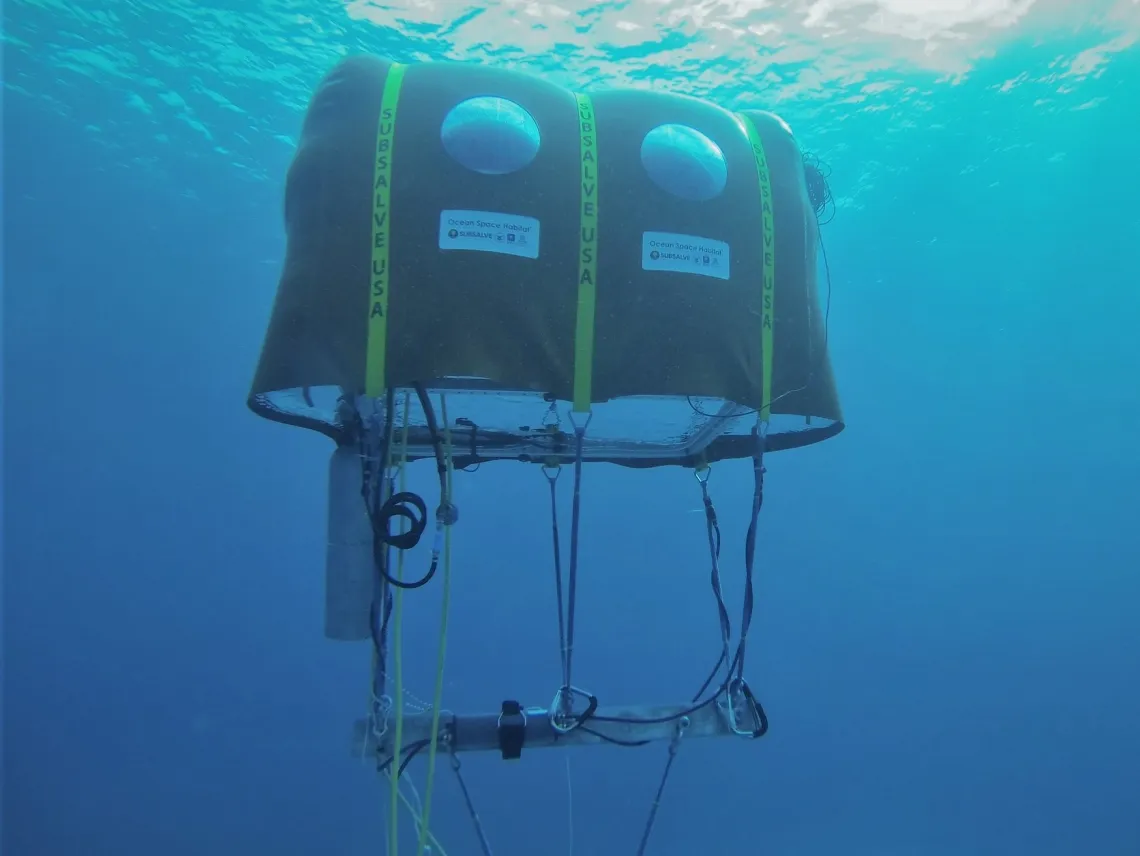iSchool Professor's Underwater Tent Co-invention Featured in Discovery Channel's Shark Week

The Ocean Space Habitat was customized for Shark Week and includes the University of Arizona logo.
During this year’s Shark Week the Ocean Space HabitatSM, co-invented by University of Arizona Professor Winslow Burleson and professional diver Michael Lombardi, was featured in the episode ‘The Great Hammerhead Stakeout,’ which aired on July 18, 2021 on Discovery+.
The Ocean Space Habitat is a portable inflatable “underwater tent” that allows its occupants to essentially camp-out underwater. The patented (US Patent #US 10,155,573 B2) technology platform was developed by Lombardi and Burleson.

Burleson is a professor and the director of research for the School of Information in the College of Social and Behavioral Sciences and has a joint appointment in the Health Sciences Design Program. Burleson helped invent the technology for the tent when he was a professor at New York University.
Research and development efforts are ongoing at Lombardi Undersea LLC, in cooperation with multiple academic and industry partners, including New York University, the University of Arizona, University of Connecticut, the City University of Hong Kong, and Subsalve USA.
“UA’s Ocean Space Habit research collaborations are expanding what is possible and feasible in a broad range of underwater environments, ranging from coral reefs studies and novel fisheries, to human robot collaborative teams and planetary analogue missions,” Burleson said. “Airing first-of-its-kind Hammerhead research on Shark Week is certainly one of the highlights to date!”
The habitat provides a relatively dry and protected space underwater for divers to enter, remove their equipment, and carry out tasks before returning to the surface. This affords significant advancement in decompression for deep scientific diving, medical treatment of decompression sickness in remote locations, the ability to make long-term observation of wildlife behavior, and the opportunity to conduct science experiments before surfacing. The tent system is highly portable and can provide adequate life support to support two occupants through an overnight stay.
Multiple deployments have been conducted since 2011, and the platform is now emerging as a viable scientific tool.
‘The underwater value is analogous to a backpacking excursion – we certainly learn more from an overnight in the environment than a short walk in the park. That step has not yet been taken in the underwater world in an affordable and accessible way for the masses,” Lombardi said.
Burleson is a social inventor with expertise in human computer interaction and the learning sciences. He previously served as principal investigator for the NSF Experiential Supercomputing: A Transdisciplinary Research and Innovation Holodeck grant. He has authored over 100 scholarly articles, holds 11 patents, and twice received Time magazine’s Top Inventions of the Year Awards.
Read more about the Ocean Space Habitat in National Geographic.

